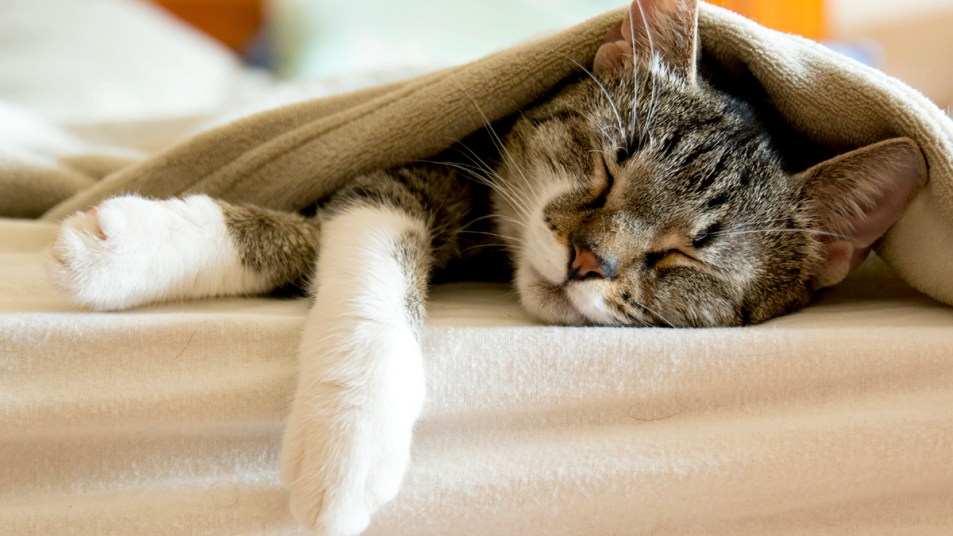Is Cat Snoring Normal? Here’s What You Should Know

Unlike dealing with a partner who keeps you up all night sawing logs, cat snoring can be pretty darn adorable. But is it a sign they need a trip to the vet?
Cat snoring is common, especially in brachycephalic breeds, which are the felines with flat faces like Persian and Himalayan. Their shorter airways make them more vulnerable to breathing troubles. They might even sound like they’re snoring when they’re wide awake. The pet experts at VCA Animal Hospitals warn these non-sleep snores could be a sign they indeed need a trip to the vet. They list a few other symptoms that could indicate bigger problems in brachycephalic breeds: breathing more from their mouth, seeming over-exerted after playing, or even fainting after getting a little exercise. It’s clearly important to keep a close eye on these particular cuties!
As for other breeds, however, snoring is mostly normal. Eric Barchas, DVM, explains on Catster that packing on a few too many pounds is the most common culprit for cat snoring. “Excess body weight leads to fat accumulation in the tissues surrounding the upper airways, which in turn can trigger snoring,” he writes. In this case, it might be time to cut back on the amount of kitty treats you’re doling out. Otherwise, Barchas says light snoring that doesn’t become more pronounced over time probably isn’t a sign of any major problems.
If you notice your furbaby’s snores getting louder and symptoms like coughing, sneezing, or loss of appetite showing up too, it might be a respiratory infection and you’ll need to get them to a vet ASAP! Barchas says it could also be a foreign object causing the sound effects, like bits of plastic or grass stuck they tried to snack on getting stuck in the airway. This will also likely cause the snoring to be louder and more pronounced, but your vet can easily remove anything getting in the way.
The final potential cause behind your kitty’s snores could be the development of a growth, like a polyp or tumor (benign or malignant). Barchas shares a story about one of his patients, a cat named Wheezer who, yes, got her name because of her snoring. “When she was anesthetized for dental work, I evaluated the back of her throat and found a large benign polyp. After the polyp was removed, the cat snoring stopped,” he explains. “Despite this development, the owners opted not to change her name.”
Bottom line: Light cat snoring usually isn’t a sign of anything other than perhaps the need for a diet. But if you notice changes in how loud it is, other symptoms arise, or you have a breed already prone to breathing problems, definitely make a vet appointment.












